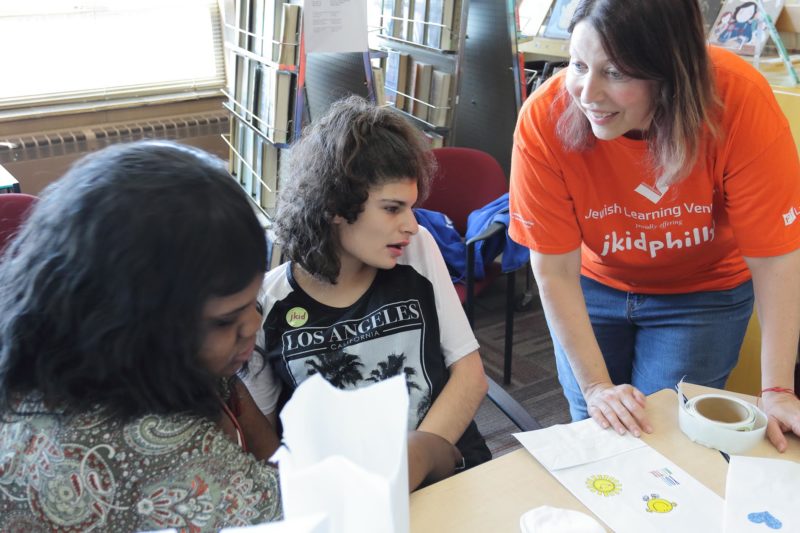Sponsored Content
Opinion
SUPPORTING FAMILIES
How Jewish professionals can support families raising kids with disabilities, during the pandemic
By Gabrielle Kaplan-Mayer
[This is the third article in a 4-part series sponsored by The Covenant Foundation and written by Covenant Foundation Award recipients and grantees.]


Courtesy The Covenant Foundation
While all families have faced challenges during the global COVID-19 pandemic, new research identifies ways that parents of children with disabilities are experiencing greater isolation, anxiety and impact on their financial well-being. Parents who already carried the stress of advocating for their children’s educational rights, managing therapeutic and medical appointments and implementing home-based programs before the pandemic have now experienced a year in which their already fragile support systems have been shaken. Many children with neurological and/or physical disabilities also have underlying medical conditions which put them at greater risk for COVID-19- forcing parents to make the difficult choice between bringing staff into their home for support or taking on all of their child’s needs- while managing work and other parenting responsibilities- on their own.
As Jewish professionals, it’s essential that we stay aware of the challenges that all of our families are facing so that we can both engage and support them. If you’ve noticed that your families who have children with any kind of special needs have been missing from your online or hybrid educational programs or family events, consider that many of them have been operating in unrelenting crisis mode since the start of the pandemic. One metaphor that may be helpful: we can think of living through the pandemic as being in the same storm for all of us, but we’re making our way through it in different boats.
Fortunately, there are a number of helpful ways that synagogue professional and community leaders can support families raising kids with disabilities during this difficult time.
Make a phone call: We often forget about the power of taking the time to make a personal phone call. Even if you don’t actually reach the parent, you can leave a supportive message, just saying that you’re thinking of them and their family. Let them know that you’re here to listen if they want to talk–it doesn’t need to be related to synagogue life. A personal call from a congregational rabbi or educator can be a powerful reminder to an isolated parent that their community cares about what their family is going through.
Learn about family engagement: It’s important for synagogue professionals and lay leaders to learn about the kind of accommodations that kids with disabilities may need to participate in family programs like Tot Shabbat, Purim carnivals or other programs that your congregation hosts for families. Recently, Jewish Learning Venture’s jkidACCESS (which offers inclusion resources for educators to meet the needs of families raising children with disabilities) created videos and a downloadable curriculum to give educators the tools they need to create inclusive programming.
Make your online programming accessible NOW: Simple steps like providing a visual schedule of what to expect in your online program offerings can help children with autism, intellectual disabilities and/or anxiety feel more comfortable in participating. Adding captions to Zoom through a program like Rev.com supports children (and adults) with hearing loss and helps many children who have ADHD and auditory processing issues. Learn more about making online programs accessible in this jkidACCESS video.
At the Jewish Learning Venture, we just launched jKidACCESS guides, which is a brand-new venture and an arm of the work we do through jKidACCESS. Our guides will receive intensive training on family engagement and disability inclusion and will build relationships with, support and send specially-designed materials to families raising Jewish children with disabilities during the coming months. We will continue to share our learning and discoveries so that our communities may see and support every family.
Gabrielle Kaplan-Mayer is an experienced educator, author and speaker. At Jewish Learning Venture, she works as Co-Interim Executive Director and has led the Whole Community Inclusion initiative for seven years. Her most recent book The Little Gate Crasher, a memoir of her Great-Uncle, who overcame society’s prejudices about dwarfism to lead a remarkable life, was one of the national book selections for 2017 Jewish Disability Awareness & Inclusion Month. Gabby holds a B.F.A. in theatre and creative writing from Emerson College and an M.A. in Jewish Studies from the Reconstructionist Rabbinical College.











